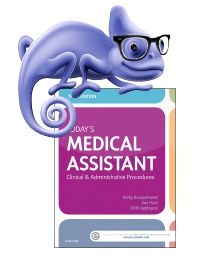
Elsevier Adaptive Quizzing for Today's Medical Assistant, 3rd Edition
Elsevier Adaptive Quizzing - Next Generation

Newer Edition Available
Elsevier Adaptive Quizzing for Today's Medical Assistant
-
- UNIQUE! In addition to detailed rationales for each question, select questions include interactive, multimedia resources such as illustrations, animations, videos, audio clips, summary tables, and study tips to help you master challenging material.
- Alternate item format questions — including multiple-response, fill-in-the-blank, prioritizing, graphic options, chart/exhibit, video, audio, and hot spot — provide valuable certification exam preparation.
- The comprehensive dashboard allows you to view your personal learning progress with summaries of your strengths, weaknesses, mastery levels, and normative data.
- The engaging, easy-to-use interface ensures that you’ll be able to navigate through the program with ease.
- UNIQUE! Elsevier’s trusted, market-leading content serves as the foundation for all questions, which are written, reviewed, and leveled by experienced health professions educators, item writers, and authors.
- UNIQUE! Unfolding questions become progressively more complex as you advance to higher levels, incorporating concepts such as delegation, multi-system diseases, or complicating conditions to help you strengthen your critical thinking and clinical reasoning skills.
- Confidence level indicators allow you to indicate your confidence when submitting answers, providing valuable insight into areas where you might require further study.
- UNIQUE! Practice in Study Mode, which provides immediate feedback, or in Exam Mode where the quiz is timed and results are summarized at the end.
- Multiple mastery levels for each chapter allow you to progress from one level to the next based on your performance.
- UNIQUE! Essential test-taking tips and strategies help you learn how to successfully dissect and tackle different question types and improve test-taking skills for both course exams and the certification examination.
-
This product is available in the following formats:
















 as described in our
as described in our 